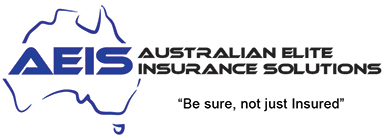Telematics technology has proven benefits when it comes to encouraging more responsible driving, with research indicating better driver behaviour is one of the main advantages in using this innovation.
Black box or telematics technology is a way for businesses to collect data on how their employees are using company vehicles. Using telematics, businesses can collect information such as whether drivers are speeding or driving dangerously, as well as how long they spend on the road. This is important, as research indicates driver fatigue is one of the main causes of road accidents.
According to the most recent Telematics Benchmark report, improved driver behaviour, peace of mind and regulatory benefits are some of main pluses to using telematics. The research found when drivers use telematics devices, businesses achieve peace of mind knowing where their vehicles are on the road and can also plot more efficient routes, leading to reduced costs such as lower fuel bills.
Importantly, data shows businesses that use telematics can improve the safe driving record of their vehicles. Mercurien Insurance specialises in providing insurance to businesses that use tools such as telematics to manage their fleet of vehicles. One of its clients, a not-for-profit organisation with a vehicle fleet, saw speeding events per kilometre drop from 0.14 to 0.07 across two-and-a-half years. Additionally, at fault claims fell from just over 60 to just over 20 a year thanks to telematics.
As this shows, businesses that use telematics may experience a commensurate improvement in driver safety. As a result, some insurers look favourably on businesses that employ telematics in their vehicles.
Businesses collect the data and may provide it to some insurers, who then use it to make decisions on the policy and its conditions. Insurers may approve more favourable policies, including more cost-effective premiums, based on data showing better driver safety.
Turning to the public sector, the National Transport Commission is reviewing how telematics is used across the transport industry, especially among vehicles that are required to comply with the Heavy Vehicle National Law, as well as vehicles that are required by law to use telematics, such as taxis and buses.
Michael White, Steadfast’s Broker Technical Manager, explains telematics may be used by businesses to better manage how their fleets are operated and to also provide this information to their insurer.
“In the case of heavy motor vehicles, telematics can provide information on how the vehicle is being driven, speeds, how brakes are used and whether drivers comply with road rules,” he says.
Zurich Motor Fleet Underwriting and Risk Engineering is one insurer that has a telematics-based insurance policy. Zurich Fleet Intelligence (ZFI) uses telematics data gathered from its policyholders vehicles through black box technology. Subsequently, Zurich uses this information when assessing insurance policy applications and claims.
Often, Zurich’s clients already have devices in place in vehicles so they can monitor vehicles for logistics purposes. ZFI can draw on this data to assess how individual drivers behave when they are on the road. The technology also provides information to drivers about their driving performance, online and in real time.
However, another insurer, QBE, has exited the market, closing its Insurance Box product it launched in 2014. This technology provided people with a Drive Score and helped them become better drivers, by providing feedback on driving habits and tips on how to improve driving performance. It was the first product of its kind in Australia but will no longer be offered as a standalone product.
Despite QBE streamlining its telematics offering, this technology is likely to become more popular with insurers, businesses and regulators as it becomes more sophisticated over time.
☎ (07) 3491 6532
? admin@aeispl.com.au
Important note – This article is provided by Steadfast.
The information provided here is general advice only and has been prepared without taking in account your objectives, financial situation or needs. Steadfast Group Ltd (ABN 98 073 659 677, AFSL 254928)


Recent Comments